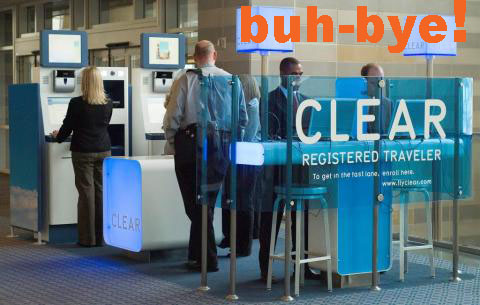 Top Class Action Lawsuits
Top Class Action Lawsuits
North of the 49th and just slightly south of the law? Google got hit with a Canadian privacy violation class action lawsuit this week, alleging the internet giant has been collecting location data from Android smart phone users even when “location services” are shut off and SIM cards are removed. Maybe I should be shocked, but hey…
Filed by Vancouver resident Kipling Warner, the complaint states “Google collects, uses, retains and commercialises [sic] the location data it takes from users, and profits from it. Google’s wrongful acts violated the Privacy Act … and unjustly enriched it at the expense of users. Through this suit, Canadian users seek to hold Google accountable for this unlawful conduct.”
The Google privacy lawsuit, filed on November 28 in BC Supreme Court, claims Warner owns a Samsung Galaxy S4 that runs Google’s Android operating system. Despite having had the phone’s location services feature disabled, Warner asserts that in 2017, Google “began a program of mass user surveillance.” The data, according to the lawsuit, enabled Google to monitor and identify users’ movements and locations.
“Google’s decision to collect the Location Data was planned and deliberate, and was made knowing that users had not consented to, and were not aware of, its collection,” the proposed class action states.
Further, Kipling claims, Android users’ privacy was violated and the data collection could allegedly facilitate “surveillance by hackers or undesireable state actors” while people who need their locations kept secret such as victims of abuse, journalists and confidential sources, or undercover police officers, are under “increased risk of personal harm from disclosure,” the claim states.
Kipling seeks an order certifying the lawsuit as a class proceeding, damages for breach of the Privacy Act, and “disgorgement of all benefits received by Google attributable to the unauthorised [sic] collection, retention, and use of the Location Data.”
Vacation spoiler? Those annoying and potentially illegal robocolls could put you off your poolside vibe for sure. This week, Marriott Vacation Club got hit with a proposed class action lawsuit alleging the company made unsolicited robocalls to the consumers’ cellphones using an autodialer, in violation of the Telephone Consumer protection Act (TCPA).
Filed in California federal court by lead plaintiff, Cheri Astrahan, the proposed action alleges Marriott Vacation Club had, without her permission, used an automatic telephone dialing system with an artificial or pre-recorded voice, to contact her cell phone. However, in 2003, she had added her cellphone number to the national do not call registry. Ah – does that matter?
“Plaintiff requested for defendant to stop calling plaintiff, thus revoking any prior express consent that had existed and terminating any established business relationship that had existed,” the complaint states. “Despite this, defendant continued to call plaintiff in an attempt to solicit its services and in violation of the National Do-Not-Call provisions of the TCPA.”
According to the proposed lawsuit, Marriott Vacation Club, a timeshare operator, made numerous unsolicited telephone calls to Astrahan’s cell phone over a 12-month period. Specifically, she claims that beginning in October, Marriott Vacation Club contacted her on her cellphone in an attempt to solicit her to buy the time share’s services.
However, on October 25, 2003, Astrahan claims, she revoked consent for the time-share company to call her cellphone by expressly requesting that the company cease its solicitation. The revocation ended any prior express consent that had existed and terminated any established business relationship that had existed between Astrahan and Marriott Vacation Club, according to the complaint.
In her complaint, Astrahan asserts Marriot Vacations Worldwide has committed four violations of the TCPA and she is seeking $500 in statutory damages for each negligent violation and treble damages of up to $1,500 for every knowing and willful violation.
The proposed nationwide class numbers in the thousands, so damages exceed the $5 million threshold for federal court jurisdiction under the Class Action Fairness Act of 2005, according to the lawsuit.
The case is Cheri Astrahan v. Marriott Vacations Worldwide Corp., d/b/a Marriott Vacation Club, case number 8:17-cv-02139, in the U.S. District Court for the Central District of California.
Top Settlements
Good news for the holidays! A preliminary $3.5 million settlement has been reached potentially ending a California labor law class action lawsuit pending against Pier 1 Imports.
The lawsuit, filed by Lauren Mathein and Christine Sabas, alleged Pier 1 failed to reimburse the class for hours spent working without pay while checking in to find out if they had to work a “flex shift.” This involved Pier 1 enforcing what is known as a Flex Shift policy, which requires associates to report for work either by phone or in person, before they are told they have to work that day.
Pier 1’s policy, the lawsuit claims, is in violation of California wage laws and the California Private Attorneys General Act because it required employees to “mold their lives around the possibility that they will work each and every” so-called call-in shift, even though the home goods store often chose not to put them to work.
According to the preliminary Pier 1 settlement, each plaintiff will receive $12,500 in addition to his or her entitlement as a class member, which will be determined after all other deductions are taken into account.
The case is Mathein v. Pier 1 Imports Inc. et al., case number 1:16-cv-00087, in the U.S. District Court for Eastern California.
Ok Folks – That’s a wrap! See you at the bar.



 Top Class Actions
Top Class Actions